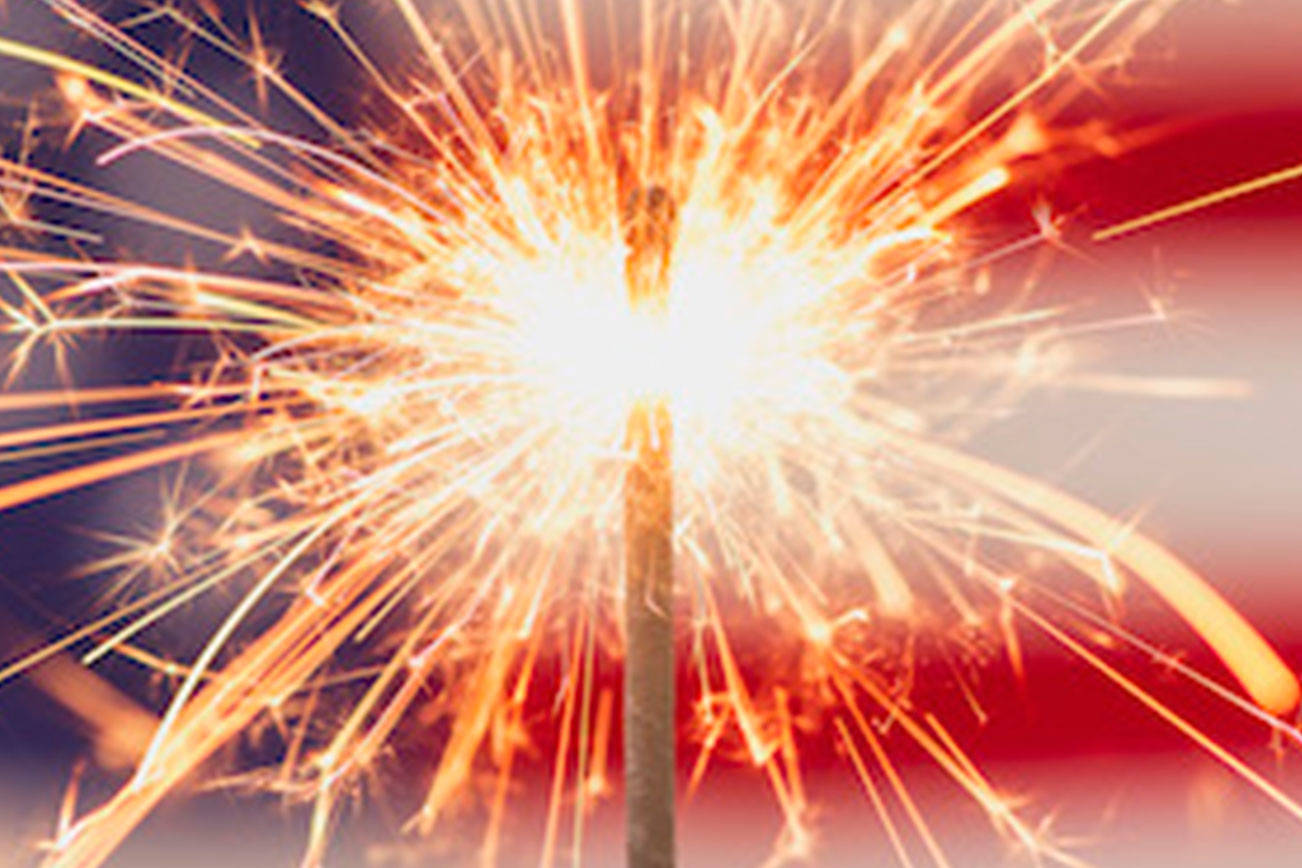Fireworks are no longer a once-a-year thing.
But while most people enjoy them on July 4, New Year’s eve., and as heralds of Seahawks touchdowns and victories, there’s no denying that when a fool or jerk is at the sizzling end of a fuse, neither nearby bodies nor property are safe.
After listening to what Interim Police Chief Dan O’Neil and Assistant Police Chief Mark Caillier said recently about problems officers on the street face trying to enforce Auburn’s fireworks ordinance and make arrests when warranted, city council members appeared ready to provide officers with an additional tool to deal with scofflaws.
That is, the council is weighing adding civil infractions to the officer’s fireworks tool belt.
While that belt has a slot for the issuance of criminal citations to people who set off fireworks forbidden by the city code outside of the Muckleshoot Reservation, at present it limits civil infractions to the discharge of illegal fireworks in city parks. Auburn City Councilman and former police officer John Holman supported this change, but emphasized the importance of giving officers latitude to decide which of the two the situation calls for.
“I would be in favor of adopting an infraction ordinance for fireworks; I would not be in favor of losing the ability of the officer to use his or her discretion to issue a citation,” Holman said. “You need both. Some people need to go to jail, that’s just a fact, but don’t remove the discretion from the officer in the field.” The city council has not yet taken any formal action on the idea.
Here’s what’s at stake.
A criminal citation, which carries a $1,000 fine and a potential jail stay not to exceed 90 days, requires an officer to witness the crime take place or to gather evidence linking it to a specific person, and the burden the officers must meet is “proof beyond a reasonable doubt.” Linked as they are to misdemeanor arrests, criminal citations require the alleged offender to appear in court. The law gives a prosecutor discretion to amend the charge to a civil penalty, dismiss it, or resolve it via a bench or jury trial.
A civil infraction, for example a speeding ticket, requires a lower burden of proof to make the case, that is, showing that the violation more than likely occurred. As a civil matter, infractions call for a $250 fine, which the alleged offender may pay or challenge in a civil hearing. And again, as they relate to fireworks, officers may only issue civil infractions to people possessing or discharging fireworks in city parks.
Auburn models its fireworks ordinance on state law, which allows people to have and to set off consumer fireworks such as fountains, spinners, smoke devices, roman candles, parachutes, wheels, shells, mortars and sparklers within city limits. A proprietor, however, cannot sell sky rockets, missile type rockets, firecrackers, salutes or chasers to the public as consumer fireworks as defined by federal law, and people cannot set them off.
Except on tribal land.
That exception looms huge in Auburn, which is the only city in South King County with a reservation, its principal seller of fireworks, inside the municipal boundaries.
State law says fireworks can be sold and set off in the state and between June 28 and July 5. While Auburn follows state law, as a sovereign nation, the Muckleshoot Tribe has a different schedule, and it starts earlier in June with its sales than state law directs.
Cities like Kent or Renton have imposed a complete ban on all fireworks, that is, they don’t even allow fireworks that are legal in state law.
Challenges to arrest
To issue a citation for a fireworks violation in Auburn, O’Neil said, officers must establish probable cause, identify facts and circumstances that a violation occurred and that a specific person is responsible for the violation.
A typical scenario, he said, would be officers showing up at the site of a fireworks complaint, where a group of people are standing around discharged fireworks or fireworks that are new or in good condition. When no one claims ownership, he said, all that officers can do is seize the fireworks.
Despite zero tolerance, O’Neil continued, officers can still exercise discretion to avoid busting otherwise law-abiding people, for example, in the case of an otherwise law-abiding Boeing engineer who is unlawfully discharging fireworks with his kids at a July 4 barbecue.
“Officers show up and (in that case) they exercise their discretion and don’t issue a criminal citation for the discharge of illegal fireworks. They understand that an engineer, for example, could have a security clearance, and getting a criminal citation for a fireworks violation could ultimately jeopardize his job and his security clearance,” O’Neil said.
Challenges to prosecution
• Public defender funds must be available as it is a misdemeanor crime;
• Most jurors consider it a minor offense and are less likely to convict;
• Most people who are cited are otherwise law-abiding citizens with no criminal history, so prosecutors exercise discretion, which results in alternative charges.


